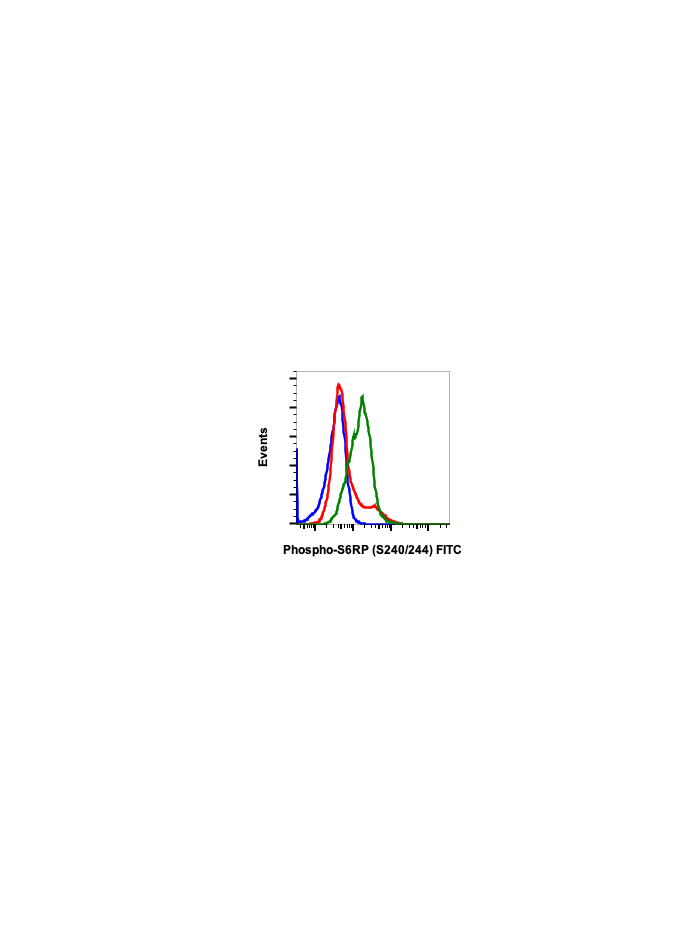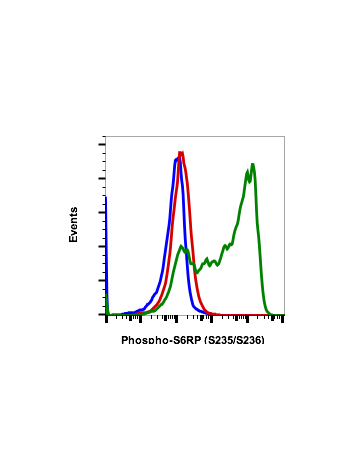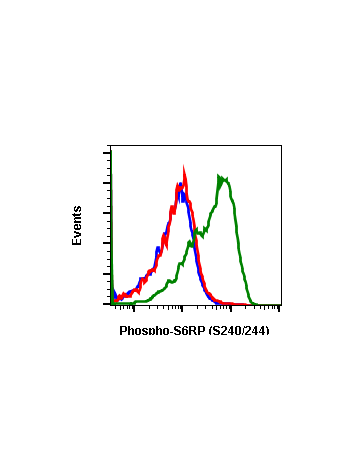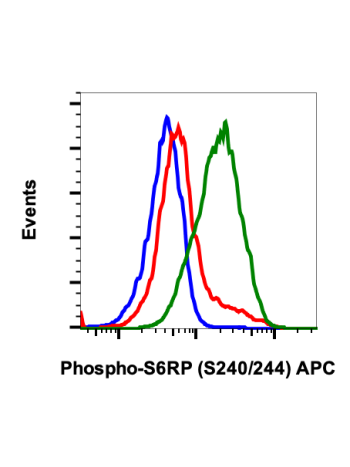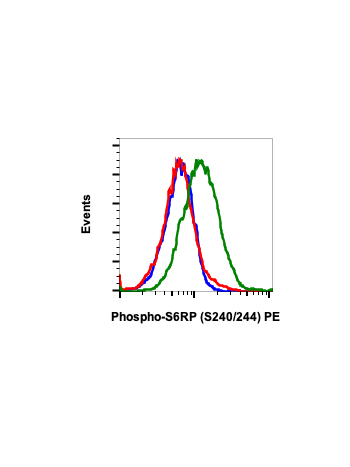Phospho-S6-Ribosomal Protein (Ser240/244) (CD10) rabbit mAb FITC Conjugate
Ribosomal protein S6 kinase is one of two parallel signaling pathways downstream of mTOR, with the other being 4E-BP1. mTOR phosphorylates and activates S6 kinase, which then phosphorylates ribosomal protein S6. The pathway regulates cell growth and cell cycle progression. The identified phosphorylation sites of S6 are Ser235, Ser236, Ser240, Ser244, and Ser247, which are evolutionarily conserved in higher eukaryotes. Ser236 has been proposed as the primary phosphorylation site. Studies using S6 knockin mice, where all five phosphorylation site serine residues are replaced by alanine, have provided extensive detail on S6 function. These studies support the role phosphorylated S6 plays in regulation of cell size, glucose homeostasis, and protein synthesis.
| Applications | Flow Cytometry |
|---|---|
| Clone | S6RPS240244-CD10 |
| Format | FITC |
| Validated Reactivity | Human, Mouse |
| Cross Reactivity | Predicted to work with mouse, rat and other homologues. |
| Clonality | Monoclonal |
| Immunogen | A synthetic phospho-peptide corresponding to residues surrounding Ser240/244 of human phospho S6 Ribosomal protein |
| Formulation | 1X PBS, 0.09% NaN3, 0.2% BSA |
| Isotype | Rabbit IgGk |
| Preparation | Protein A+G |
| Recommended Usage | For flow cytometric staining, the suggested use of this reagent is 5 µL per million cells or 5 µL per 100 µL of staining volume. It is recommended that the reagent be titrated for optimal performance for each application. See product image legends for additional information. |
| Storage | 2-8ºC |
| Pseudonyms | 40S ribosomal protein S6, Phosphoprotein NP33, Small ribosomal subunit protein eS6, RPS6 |
| Uniprot ID | P62753 |
| References | Ruvinsky I and Meyuhas O. (2006) TRENDS in Biochemical Sciences. 31: 342-348. |

